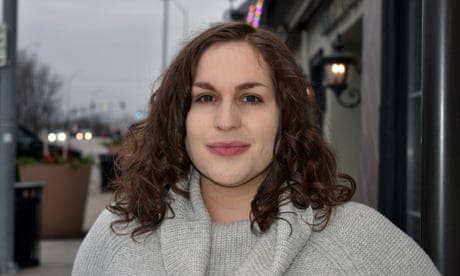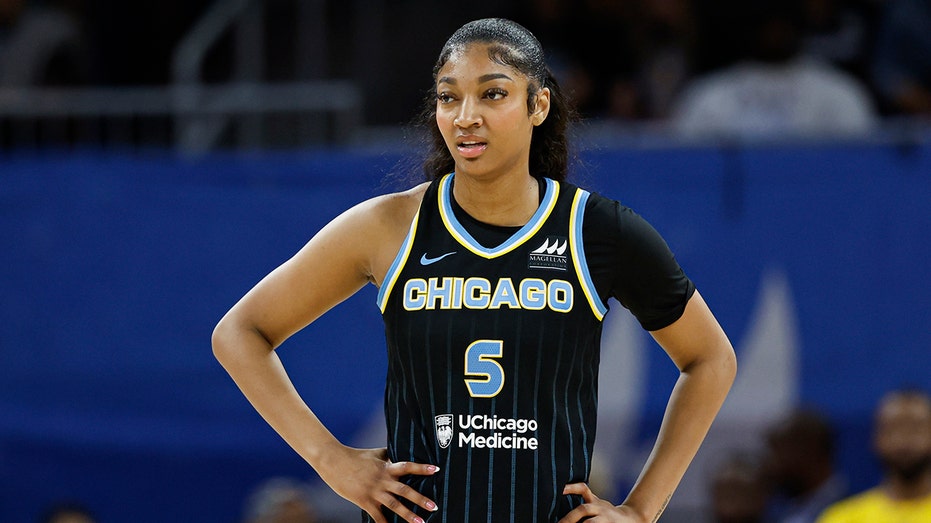- by foxnews
- 01 Feb 2025
She led two historic victories for abortion rights - by persuading Republicans
She led two historic victories for abortion rights - by persuading Republicans
- by theguardian
- 02 Jan 2023
- in news

exIf there were two votes that sent shockwaves through the US this year, they were in Kansas and Kentucky, and they were both about abortion. The former, the first direct vote on abortion to be brought to the public since the supreme court overturned Roe v Wade, by anti-abortion Republicans in a deeply red state, was defeated by considerably more than half the electorate (59% of the vote).
The latter, in Kentucky, seemed an even harder bet: Kentucky is one of the 16 US states that, before the November vote, seemed to have more support for banning abortion than protecting it, according to analysis by the New York Times from May. It also already had an outright ban in place. But the ballot initiative, also brought by anti-abortion campaigners, failed to pass, with 52% of voters rejecting an amendment to say there was no explicit protection for abortion rights in the state constitution.
One woman was at the center of these two campaigns: Rachel Sweet. The straight-talking 31-year-old from Kansas City, Missouri, previously managed Planned Parenthood's public policy for the Great Plains area, before leading the campaign to defeat the Kansas initiative, and then the Kentucky one.
The way she sums up both wins is simple: if you want to protect abortion in red states, you have to target Republicans.
"Democrats are not most of the voters [in Kentucky]," she says. "So you always go with a message that is the most broadly persuasive, so that you can get to your 50% plus one vote."
She explains that the key to winning is to understand that no two electorates are the same, and to research, poll test and work on the messages that resonate with voters in each state.
In Kansas, Republicans and independents were most swayed by messages focusing on how abortion bans are an attack on personal liberty and represent government overreach.
But in Kentucky, which already has a total ban on abortion that has been in place since Roe fell, there was more room to focus on the reality as well as on ideology - and that turned out to be effective.
"There were voters who were far more likely to understand the long-term ramifications of these extreme anti-choice policies, because they were already seeing how banning abortion impacts not only access to abortion care, but [also] treatment for miscarriages and other areas of health care in a way that is particularly concerning," says Sweet.
She gives the example of a Kentuckian named Meredith, who signed up to tell her personal story for a campaign ad for Protect Kentucky Access, the group leading the No campaign, which the group ended up not airing.
"She was suffering a miscarriage. And her pharmacist tried to deny her prescription for the medication she needed to manage her miscarriage because it's part of the medication abortion regimen. He literally said: 'I need you to prove that you're actively miscarrying.'
"The cruelty of that situation is just really powerful," says Sweet, adding: "There is no need to sell people on some dystopian future. That future is already here."
Kentucky proved a harder race to win than Kansas, with less institutional buy-in: While campaign donations for Kansas's No campaign totalled $11.48m, in Kentucky, they reached just $6.59m.
"We were always ahead of our opposition. But it did feel it was an uphill battle at a lot of times," says Sweet, over the phone from her apartment in Kansas City.
The Kentucky abortion ban is still in place. But the ballot win could impact deliberations by Kentucky's supreme court, which is considering whether to uphold the ban.
Sweet has learned to focus on meeting Republicans where they are, explaining why abortion bans don't chime with their core values - rather than trying to change hearts and minds on abortion itself.
"Abortion is a very complex issue that people have very complex and entrenched feelings about. People form their opinions on abortion over time, for a lot of reasons, and it is not something that any campaign, no matter how message-disciplined or well-funded, can change in the span of three months," she says.
After the two campaigns, which saw Sweet working long days for months on end, she is taking some time to rest before she works out her next move. But it's clear she will have plenty of options should she want to build on her wins through another ballot initiative.
Seventeen states currently allow citizen-led referenda. Abortion is under threat in at least ten of them. Advocates in states like Ohio, Idaho and potentially Missouri have already discussed bringing such ballots in the coming years.
Sweet acknowledges the battles to come will be hard, and different in each case. In Ohio, Republicans are trying to change the threshold for citizen-led ballots to pass, from a simple majority to a 60% threshold, and Republicans in Missouri have suggested doing the same.
"When red-state voters adopt or reject policies contrary to conservative politicians' points of view, this is always the immediate response: 'How do we restrict access to the ballot box?'" says Sweet, adding: "They want to take away people's right to direct democracy."
Of the more conservatives states that took abortion restrictions directly to voters in 2022 - Kentucky, Kansas and Michigan - none secured 60% of the vote in favor of abortion rights.
She points to the Michigan win, where advocates succeeded in enshrining abortion rights in the state constitution with 55% of the vote.
"That's huge. You don't usually see candidates in Michigan win with 55% of the vote. So 60% would be a very daunting obstacle to have to work around."
But she points out that the successes for the pro-choice campaign in recent months are indicative of broad, sweeping support for abortion rights across the US, regardless of geography.
"We saw all across the country, in really progressive states, purple states and red states, that people wanted to protect abortion. We saw that in really tiny states like Vermont and in huge states like California," she says. "It's very clear that abortion rights is an issue that can win everywhere. And I'm sure that scares the anti-choice politicians that are in office in places like Ohio."
- by travelandtourworld
- descember 09, 2016
Thailand's Luxury Hotels Achieve Exceptional ADR Growth in 2024, Outpacing London and Singapore in Market Gains
Thailand’s luxury hotels saw remarkable ADR growth in 2024, surpassing London and Singapore in percentage increases, highlighting strong market expansion.
read more


